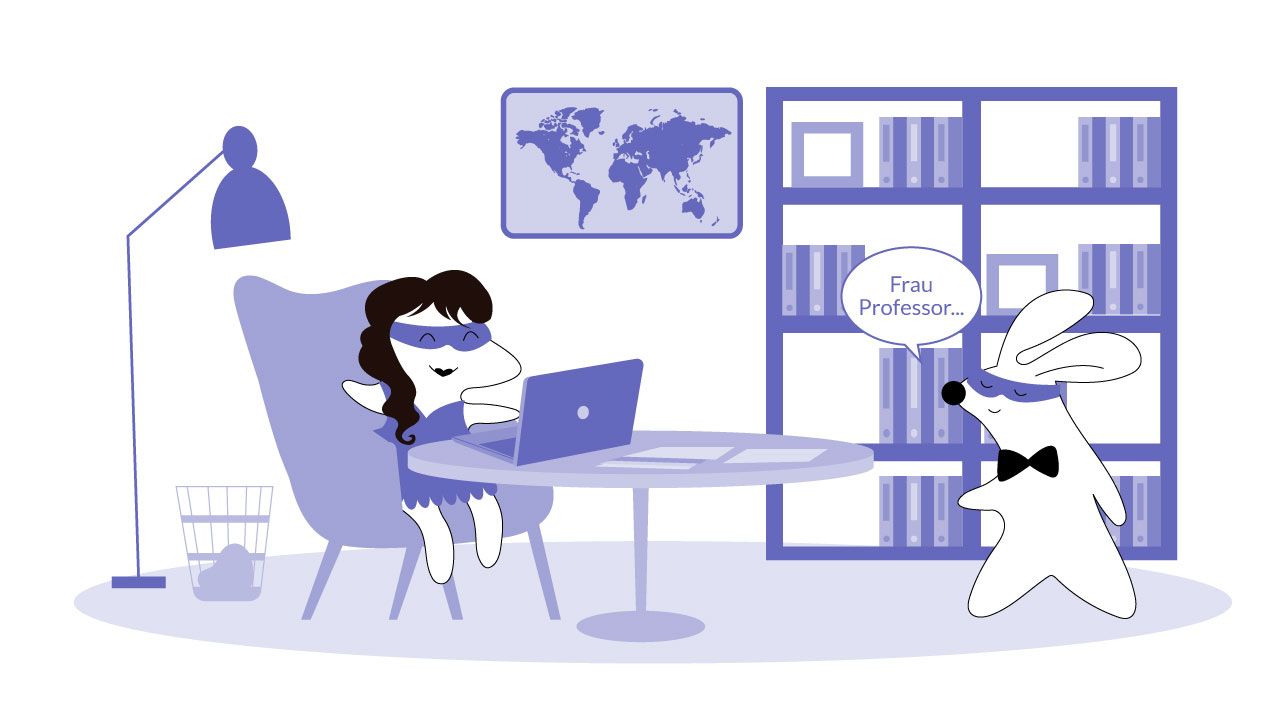
When doing business with Germans, it is important not just to memorize the necessary vocabulary but also to be aware of their cultural norms and expectations. Germans are known for being efficient and organized, and they place a high value on punctuality and discretion, but is that always true? And, what else should you know to do business with them?
In this article, let’s explore some of the key elements of German business culture and get you prepared for most business endeavors with native German speakers. Knowing this should allow you to smoothly enter the largest business market in the European Union and communicate effectively with your business associates. Read on.
Learn German with Langster
Punctuality
Germans are well-known for their punctuality, and the business culture in Germany reflects that. Punctuality is highly valued, and tardiness is seen as disrespectful. In general, Germans like things to be planned and organized, so arriving late to a meeting or appointment can cause some chaos.
There are a few reasons why this trait is so important in German culture. For one, the German work ethic is very strong, and time is seen as a valuable commodity. Germans also have a strong sense of order and prefer things to be done in a specific way and at a specific time. Tardiness can throw off the entire schedule and disrupt the flow of any activity or meeting.
In business settings, being on time shows that you respect your colleagues’ time, and it indicates that you are reliable and trustworthy. It sends the message that you take your business relationships seriously. Conversely, being late communicates the opposite – that you don’t care about others or that you’re not reliable.
Value of Structures and Rules
Germans have a strong sense of order, which is why they value structure so much in their lives. Everything has its own place and needs to be done in a precise way according to the set rules. This includes their work life, where punctuality and adherence to schedules are highly valued.
Business meetings usually start and end on time, with very little deviation from the agenda. Germans believe that by sticking to the plan, everyone can get the most out of the allotted time together.
Most German businesses place a high value on punctuality and rules, and they prefer sticking strictly to the plan. This can often throw off foreigners doing business with Germans, as they are not used to such an explicit focus on schedules and procedures.
Shaking Hands
Shaking hands is the vital form of greeting in good German business etiquette. You will shake hands with mostly everyone you meet in business settings – colleagues, clients, partners, employers, and employees. And, of course, there are several rules for a proper German handshake.
- Give a handshake with your right hand, and make sure to take your left hand out of you pocket – otherwise, it may be seen as rude.
- Shake hands firmly but not too tightly – you don’t want to come across as aggressive.
- Make sure your hand is clean and free of any dirt or grease.
- Make eye contact with the person you’re greeting – this shows that you are sincere and interested in what they have to say.

Remember that personal space in German is safeguarded – and whether you’re greeting a colleague or a friend, shaking hands will almost always be the only way to not overstep your boundaries.
Overall, Germans are not very expressive when it comes to their emotions, so don’t be surprised if your German colleagues seem a bit cold or uninterested at first. Just give them some time to get comfortable around you, and you will get used to the local business culture – and maybe they will even warm up over time.
Dress Code
Another key element of German business culture is the dress code. In general, Germans like to dress conservatively and in a professional manner. This includes dark suits and ties for men and simple trousers or skirt suits for women.
It is important to avoid dressing too casually, as this may be seen as unprofessional. Nevertheless, more and more German companies are starting to allow that, especially when it comes to startups of emerging sector companies, such as PR agencies.
However, unless stated otherwise, it is best to err on the side of conservatism in business settings and dress in a way that shows respect for your colleagues. Be sure to avoid flashy or loud clothing, and make sure that your outfit is clean and wrinkle-free.
Direct Communication
In German culture, direct communication is highly valued, which is often reflected in business settings. This means that there is little room for subtleties or ambiguity – Germans prefer to get to the point and deal with issues head-on. This can often be seen as rude by foreigners, but it is actually a sign of respect in Germany.
By being direct, native German speakers are showing that they trust the other person and that they value their time. They also believe that this type of communication leads to the most efficient results. In order to make the best impression in a German company, try to be clear and concise in your communication, and avoid beating around the bush.
Reliability and Fairness
In the German business world, reliability is one of the most important values. This means that Germans place a high value on meeting deadlines, adhering to contracts, and completing tasks in a timely and efficient manner.
This allows all parties involved in business to trust each other and be certain of the work done, but it also ensures that everyone gets equal pay, good working conditions, and fair disciplinary practices.
When working with people of German background, remember that it can sometimes be difficult to get them to deviate from the plan. However, once they are assured that you are reliable and can be counted on to get everything done precisely, they can be more willing to slightly change the working terms.
Separation of Public and Private

One of the characteristic examples of fairness in the German business world is a strict separation between public and private issues. Business has no association with one’s personal life, and German colleagues most often don’t discuss personal matters with each other during work hours, as this can be seen as inappropriate and unprofessional.
Instead, Germans typically reserve personal discussions for outside of the office. In business settings, they prefer to stick to professional topics and keep any personal disagreements or problems to themselves. Members of other cultures may see this as remote, cold, or unfriendly, but Germans believe that this is the most effective way to work.
Hierarchy in the German Workplace
The hierarchy in the German workplace is based on a strict chain of command. For Germans, this type of structure leads to the most efficient results, and they place a high value on order and discipline. In general, Germans like to know who is in charge and what their role and responsibilities are in any given situation.
This can often be seen in meetings, where the most senior person in the room will typically make all of the decisions. It is also common for Germans to refer to each other by their titles (e.g., Herr Doktor or Frau Professor) rather than using first names.

Meeting Management in Germany
Meetings are an important part of conducting business in Germany, and they are often used as a way to make decisions and get things done. In general, Germans like to have a lot of information ahead of time so they can come to the business meeting prepared and ready to take action.
It is also common for Germans to hold meetings in a very structured way. The most senior person in the room will typically be in charge of running the meeting, and everyone else will be expected to stick to the agenda.
Interruptions are not tolerated, and it is considered impolite to speak out of turn. If you have something important to say, wait for your turn and then address the group accordingly.
Meetings are usually started on time, and people do not typically linger after the meeting has ended. If you need to leave early or if there is something you want to discuss with someone, try to let them know before the meeting.
Gift-Giving
Germans do not typically exchange gifts with coworkers. If you wish to give a gift to a German colleague, it is best to do so outside of the office and preferably after work hours. Gifts are usually given for special occasions, such as Christmas, Valentine’s Day, or a birthday.

Gift-giving is typically not done between business associates in Germany, as this can be seen as an attempt to create a closer personal relationship than is necessary. It can also be seen as an attempt to bribe someone, which is illegal in Germany. However, at the successful conclusion of negotiations, small gifts may be appropriate.
If you are unsure about what to give someone, it is best to ask for advice from a coworker or friend who is familiar with German culture. This will help you avoid any potentially awkward situations and ensure that your gift is well-received.
Bottom Line
When doing business with Germans, it is important to be aware of the country’s cultural norms and expectations. Remember that the key elements of German business culture include punctuality, fairness, reliability, and adherence to rules – in complex business settings, stay fair and polite, and all should be good.
If you are unsure about what to expect in a certain business situation, look at it from the point of view regarding these traits, and think: what would a German do? Sometimes, it might also be best to ask for advice from a coworker or friend who is familiar with German culture.
Overall, try to respect the German business culture – this will help you avoid any potentially awkward situations and ensure that your dealings with any German business run smoothly.









